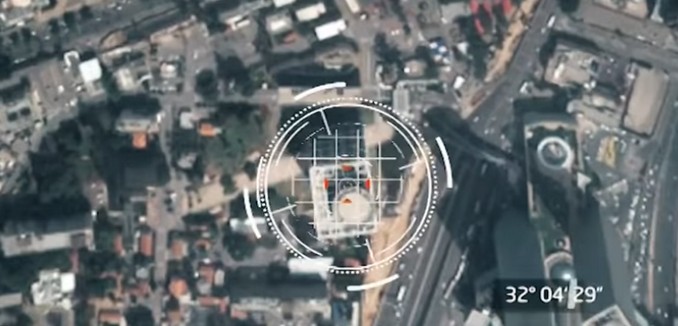The Iranian-backed terrorist organization Hezbollah threatened to attack a number of strategic locations in Israel, including the nuclear reactor in Dimona – a threat that constitutes nuclear terrorism – along with a warning, “if you dare attack, you will regret it.
The Times of Israel reported that the video appeared to show images and exact locations of the strategic sites, including the reactor, the IDF’s headquarters in Tel Aviv, a number of air force bases, and an oil refinery. In the accompanying message, Hezbollah, in both Arabic and Hebrew, warned Israel against launching an attack against the group or, in return, risk attacks against those high-profile targets.
The warning, issued by the group’s leader Hassan Nasrallah, came a day after an alleged Israeli airstrike on Iranian and Hezbollah targets in southern Syria and near Damascus. It was the first such action since the September 17 incident in which a Russian plane was shot down during an IAF operation in Syria.
Hours before the alleged strike, an Iranian cargo plane, possibly carrying advanced weaponry to Hezbollah, was seen flying from Tehran to Beirut. Cargo planes, regularly used for transporting arms to the terror group, usually unload in Syria contrary to Thursday’s incident. The aircraft flew to Doha before returning home.
This isn’t the first time that Hezbollah has threatened the Dimona reactor.
In February 2017, Nasrallah commenting on the fact that Israel was preparing to shut down ammonium tanks in the northern Israeli city of Haifa after Hezbollah had threatened to target them, said of the Dimona facility, “we will turn it into a threat to Israel.”
A few weeks later, the terrorist group released a video suggesting that it would target the reactor.
Nasrallah, again in August of last year, hinted that his terror group would target the Dimona reactor.
According to the United Nations’ 2005 International Convention for the Suppression of Acts of Nuclear Terrorism, attacking the Dimona facility could constitute nuclear terrorism. An attack on such a facility could cause the release of radioactive material, which would lead to mass casualties among the surrounding population.
Israel has repeatedly warned that it will act to prevent Iran and its terror proxy Hezbollah from establishing a permanent military presence in Syria and said it would continue to strike weapons convoys en route from Tehran to Hezbollah.
Iranian-controlled Hezbollah is in complete political and military control of Lebanon and Israel is concerned that the Shiite terror organization now has a much-larger and developed arsenal of weapons than it did during the Lebanon war in 2006.
Speaking at the United Nations General Assembly in September, Israeli Prime Minister Benjamin Netanyahu provided satellite images of Hezbollah precision-guided missile installations at Beirut’s international airport. In an op-ed published in the Boston Herald in June 2017, Joshua S. Block, CEO and President of the Israel Project, warned that “at the heart of the group’s military strategy is the deployment of human shields — a war crime and terrorist tactic aimed at exploiting the moral sensibility of the enemy.”
Failure to confront Hezbollah over its violation of UN Security Council Resolution 1701 will make a future war between Israel and Lebanon more likely. The resolution ended the 2006 war between Israel and Hezbollah, stipulated that there be no armed groups in Lebanon except for the LAF and banned other nations from shipping weapons to any force other than the LAF.
[Photo: ynet / YouTube ]




